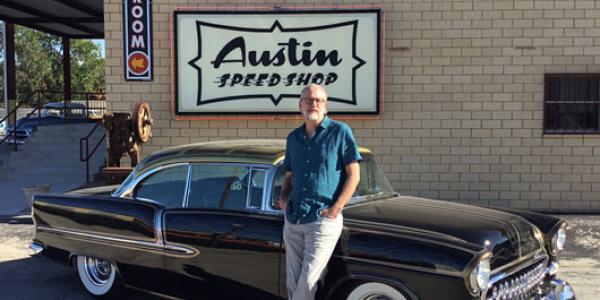Alla “Ally” Balabanova describes her time at the University of Colorado Boulder as “anything but easy,” adding that she faced obstacles “just about every step of the way,” starting with her initial uncertainty about what to study. That might not sound like a ringing endorsement, but it is.
Balabanova graduated summa cum laude in biochemistry and was the Fall 2015 outstanding graduate of the College of Arts and Sciences. The obstacles to which she refers centered around her choosing a major and gaining her stride in the world of laboratory research.
Research, she observes, is “like swimming in a large mass of uncharted waters; you’re clueless about what direction to take next, and very likely, you’ll choose a wrong approach.”
“Ideas that look good on paper don’t always work out in reality, and it becomes discouraging. Yet when the results are finally achieved, it makes the entire struggle worthwhile.”
Balabanova’s honors thesis was based on her research on a cancer-fighting drug that is designed to kill cancer cells while minimally affecting healthy cells. Working in the laboratories of Hubert Yin and Tad Koch, professors in the Department of Chemistry and Biochemistry, she employed a “wide range of advanced methods, from chemical synthesis to spectroscopy to live cell biology,” her honors committee wrote.
Balabanova has long wanted to pursue a career in the medical field, and she has considered going into pharmacy or medical school. In her sophomore year at CU-Boulder, she took an organic-chemistry course from Yin. She loved it and “pretty much aced all the tests.”
At the end of that semester, Yin suggested that Balabanova work in a lab. When she asked him to recommend her to a CU-Boulder biochemistry lab, Yin invited her to join his own lab. Given his stature, that was something of a coup. Yin’s graduate student Ryo Tamura served as her mentor.
Koch, her thesis adviser, explains that Balabanova’s research project was both challenging and cutting edge.
I am certain that Ally will achieve greatness in whatever she undertakes.”
“Her project involved the synthesis and biological evaluation of a new cancer chemotherapeutic being developed in our group, targeted to cancer cells using methodology being developed in Hubert’s group, and activated photochemically by methodology being developed in the group of Anna Moore at Harvard Medical School,” Koch notes.
“Ally was amazing in her project as well as her studies at CU. She and her family clearly demonstrate the importance of immigrants to our country,” Koch says
Balabanova’s family lives in Centennial, Colo., but came to the United States from Moldova, the former Soviet republic, in 1998, when she was 6. She is fluent in both English and Russian, and as a student, she worked as a translator of Russian for the National Snow and Ice Data Center at CU-Boulder.
Balabanova has opted to take a year off between undergraduate and medical school. She’s decided to become a physician—perhaps a pediatrician. She decided against becoming a pharmacist, having concluded that being a physician would give her more interactions with patients.
Balabanova has applied to CU’s medical school and to medical schools at the University of California, San Francisco, and UCLA.
Her thesis adviser believes Ally will go far. “I am certain that Ally will achieve greatness in whatever she undertakes,” Koch says.
Clint Talbott is director of communications and external relations for the College of Arts and Sciences and editor of the College of Arts and Sciences Magazine.




